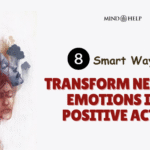News: We easily forgive our loved ones when they misbehave with us, but not the stranger who committed the same transgression. That leniency may come at the cost of the judger’s own sense of self-worth, according to a new study.
According to lead author Rachel Forbes, the reason underlying this behavior is the conflict that we face trying to hold our moral values and maintaining our relationship with the wrong-doer, who is close to us. Researchers at American Psychological Association focused on the cause of the conflict and conducted four experiments involving more than 1,100 participants.
“Across a diverse range of methods with both student and online samples, our findings suggest that having a close relationship with the transgressor heavily affects responses to their bad behavior, supporting the call for social-relational factors to be more strongly incorporated into models of moral judgment,” Said Forbes.
The findings published in the Journal of Personality and Social Psychology. Are important because, in day to day life, unethical behaviors are often entwined with social ties. The results help us understand responses to the unethical behavior of close others.
“Identifying that observers are more lenient toward close others who transgress raises deeper concerns about how moral norms are policed by individuals in these situations,” said co-author Jennifer Stellar. “This may allow people to either overlook and/or fail to call out transgressions committed by close others, which poses a danger for maintaining the moral norms in society.”
To Know More You May Refer To
Forbes, R. C., & Stellar, J. E. (2021). When the ones we love misbehave: Exploring moral processes within intimate bonds. https://doi.org/10.31234/osf.io/a3y52






